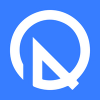PHP, a server-side scripting language pivotal in web development, offers a myriad of libraries that streamline and enhance the development process. Understanding these libraries and their applications is crucial for developers looking to optimize efficiency and functionality in their projects. This article delves into the essence of PHP libraries, and their uses, and explores some of the top PHP libraries in 2024, discussing their various features to aid developers in making informed choices.
What is a PHP Library?
A PHP library comprises pre-written code that developers can leverage to execute routine tasks efficiently. These libraries offer a range of functions and classes, allowing developers to avoid rewriting code from scratch for functionalities that are frequently needed in web applications. This not only speeds up the development process but also ensures more robust and error-free code, as these libraries are often well-tested and widely used.
Uses of PHP Libraries
PHP libraries are versatile tools with various applications in web development:
- Streamlining Development: By providing ready-made functions and classes, PHP libraries reduce the time and effort required in coding common features.
- Enhancing Functionality: They enable the integration of complex functionalities without the need for extensive coding.
- Improving Security: Many libraries include security features that protect web applications from common vulnerabilities.
- Supporting Best Practices: They encourage using standard coding practices, making code more readable and maintainable.
- Community Support: Popular libraries often have strong community support, providing a wealth of resources for troubleshooting and learning.
Top PHP Libraries in 2024
1. Laravel
Laravel cements its position as a premier PHP framework, revered for its elegant syntax and comprehensive features that streamline web development even in 2024. Central to its appeal is Eloquent, Laravel's advanced ORM, which simplifies database interactions by allowing developers to treat database tables as PHP objects, leading to more intuitive, maintainable code.
Complementing this is Laravel's Blade templating engine, which stands out for its capacity to create complex and dynamic layouts effortlessly. Blade's template inheritance and data formatting capabilities ensure that user interfaces are both responsive and easy to manage.
Additionally, Laravel's Artisan console, an integral built-in tool, automates repetitive tasks like database migrations and seeding, enhancing productivity and ensuring consistency across development processes. These features collectively make Laravel an unmatched choice for PHP developers in 2024, striking a perfect balance between robustness, elegance, and efficiency in web application development.
2. Phalcon
Phalcon sets itself apart in the PHP framework landscape as a high-performance solution, uniquely implemented as a C-extension. This design choice is pivotal in delivering exceptional speed and memory efficiency, positioning Phalcon as one of the fastest frameworks available.
Beyond its performance edge, Phalcon champions coding best practices and the reuse of code, fostering an environment where developers are encouraged to produce clean, modular, and maintainable code. This approach not only elevates the quality of individual projects but also ensures consistency and scalability in larger team endeavours.
Complementing these attributes, Phalcon's robust Object-Relational Mapping (ORM) system and advanced querying capabilities offer a seamless and intuitive database interaction experience. The ORM treats database tables as classes and rows as objects, simplifying data operations, while its querying functionality allows for efficient and complex data manipulations. Collectively, these features secure Phalcon's status in 2024 as a top-tier choice for developers seeking a blend of high-speed performance, best coding practices, and effective data handling in their web applications.
3. Symfony
Symfony solidifies its reputation as a flexible and robust PHP framework, known for its stability and modular components. It offers a unique advantage where developers can either leverage the full-stack framework for extensive application development or select specific components for more focused tasks. This adaptability makes Symfony suitable for a variety of project sizes, from small-scale solutions to large, complex systems.
The framework's comprehensive and well-structured documentation is another key feature, catering to developers across all skill levels. From detailed guides for beginners to in-depth material for advanced users, Symfony's documentation and tutorials make it accessible and easy to master.
Moreover, the vibrant Symfony community is a significant asset, providing extensive support, resources, and a platform for knowledge exchange. This active community not only aids in problem-solving but also contributes to the framework’s continuous evolution, keeping it in line with the latest web development trends.
Overall, Symfony in 2024 stands out as a top choice for PHP developers, offering a perfect blend of flexibility, comprehensive learning resources, and strong community support.
4. Yii2
Yii2 maintains its status as a highly efficient, object-oriented PHP framework, acclaimed for its performance focus. A key highlight is its code generation tool, Gii, which automates the creation of models, controllers, and more, streamlining the development process and allowing developers to focus on complex functionalities.
The framework also excels in simplifying database interactions through its intuitive API. Yii2's Active Record implementation provides an easy and straightforward way to handle database queries, insertions, updates, and deletions, ensuring cleaner and more maintainable code.
Security is another cornerstone of Yii2, with robust built-in measures against web vulnerabilities like XSS and CSRF. These security features are seamlessly integrated and simple to implement, ensuring that applications built with Yii2 are secure by default, a critical aspect in the evolving web landscape of 2024.
Yii2, in essence, combines efficient code generation, simplified database management, and strong security features, making it a preferred choice for developers prioritizing performance, ease of use, and security in their web applications.
5. CakePHP
CakePHP is a rapid development framework, favored for making web application development simpler and faster. Its "conventions over configuration" approach significantly cuts down the coding requirements and decision-making, allowing developers to focus more on unique aspects of their projects. This streamlined approach is a major time-saver in the development cycle.
Additionally, CakePHP's flexible database access layer and powerful scaffolding system facilitate the swift building of application foundations. This system automates basic CRUD operations, enabling rapid prototyping and subsequent refinement, enhancing development efficiency.
Security features in CakePHP, including robust input validation and built-in CSRF protection, are also highly valued. These tools are straightforward to implement and effective, ensuring that applications are secure from common web vulnerabilities, a crucial aspect in today's web development landscape.
CakePHP in 2024 continues to be a go-to framework for developers seeking to balance rapid development with security and ease of use, proving its worth in the fast-paced world of web application development.
6. Slim
Slim is a favoured PHP micro-framework, particularly for its minimalistic yet powerful approach in developing web applications and APIs. Its simplicity makes it highly suitable for small-scale applications or APIs, offering an easy-to-learn and implement framework that is accessible even to those with minimal PHP experience. This makes Slim an excellent choice for projects requiring rapid development.
A key aspect of Slim is its adherence to interoperability and web standards, notably PSR (PHP Standard Recommendations). This adherence ensures that Slim-built applications can seamlessly integrate with various systems and components, an essential quality in the interconnected digital landscape.
Additionally, Slim's flexible architecture allows for the easy addition of specific functionalities as needed, without burdening the application with unnecessary features. This modular design enables developers to tailor applications to precise requirements, enhancing both efficiency and customization.
In essence, Slim's combination of simplicity, compliance with standards, and modularity makes it an attractive choice in 2024 for developers seeking an efficient, adaptable framework for smaller-scale web applications and APIs.
7. CodeIgniter
CodeIgniter remains a popular choice for its powerful capabilities and small footprint, appealing to developers needing an efficient, yet comprehensive PHP framework in 2024. This compact nature ensures swift application load times and efficient resource use, key for responsive web development.
The framework's extensive and clear documentation significantly eases the learning process, making it approachable for both newcomers and experienced developers. This ease of access to information streamlines the onboarding process, allowing quick and efficient project kickstarts.
Additionally, CodeIgniter's rich library set, covering essential web development tasks like database abstraction and session management, simplifies development. These built-in libraries reduce the reliance on external resources, enabling developers to focus more on unique application features.
CodeIgniter's blend of performance, user-friendly documentation, and a comprehensive set of libraries continues to make it an ideal choice in 2024 for creating full-featured, efficient web applications.
How to Choose the Right PHP Library?
Selecting the appropriate PHP library is a critical decision that can greatly influence the project's success and efficiency. Here's a more detailed look at the key factors to consider:
1. Project Requirements: It's essential to have a clear understanding of what your project needs. Different libraries offer different functionalities and are designed for varying types of projects. Assessing the project's scale, complexity, and specific features required will guide you in selecting a library that aligns with your goals.
2. Community and Support: The presence of an active community and reliable support is crucial. A vibrant community means access to a wealth of shared knowledge, tips, and troubleshooting help. A well-supported library ensures you're not alone in your development journey and can keep up with evolving technology trends.
3. Performance: The performance of a library can greatly affect the efficiency and scalability of your application. Some libraries are optimized for speed and have a smaller footprint which is ideal for projects where performance is a priority. On the other hand, more feature-rich libraries might have more overhead. Evaluating the performance implications of a library in relation to your project's needs is essential for maintaining smooth and responsive application behaviour.
4. Learning Curve: Consider how easy or difficult it is to learn and use the library. This is especially important if your team is not familiar with the library or if you're working on a tight schedule. Some libraries have a steeper learning curve but offer more features, while others might be more straightforward but less feature rich. Balancing the complexity of the library with the skill level of your development team and the time available for learning and implementation is key.
Conclusion
PHP libraries are invaluable resources in web development, offering a wealth of functionalities that streamline the development process, enhance performance, and ensure security. As we look forward to 2024, Laravel, Phalcon, Symfony, Yii2, CakePHP, Slim, and CodeIgniter continue to be some of the top libraries that cater to a wide array of project needs. By understanding the offerings and strengths of each library, developers can make informed decisions and choose the ideal tool for their next web development project. The right PHP library not only accelerates development but also elevates the quality and robustness of web applications.
Ultimately, the landscape of PHP libraries in 2024 is rich and varied, providing developers with a plethora of tools to enhance their web development endeavours. Keeping abreast of advancements in the field is crucial for effectively harnessing the potential of these libraries. Adaptability and staying informed are paramount in navigating the evolving landscape.


